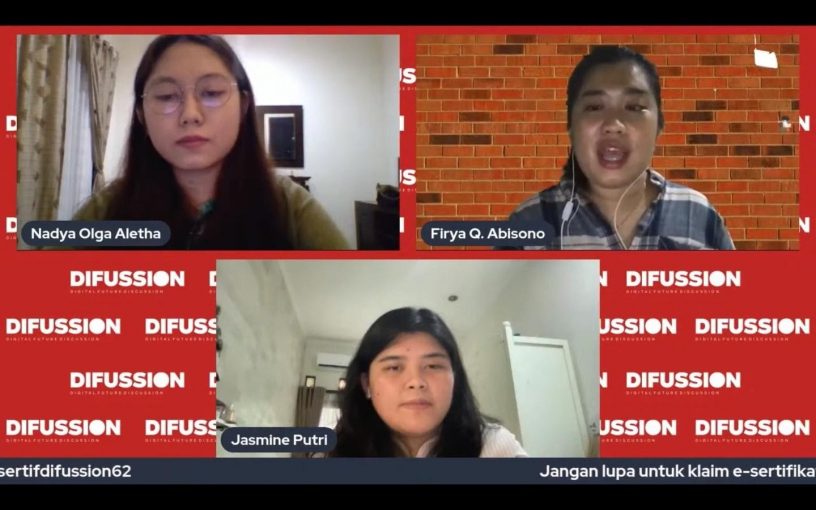
The material presentation is divided into two parts, namely ethical aspects and consumer protection in advertising on social media, and deep sexism in the public digital space. Nadya explained, Data Reportal research found that social media users had reached 4.55 billion worldwide. In addition, the potential for advertising on Facebook reached 2.28 billion, Instagram 1.39 billion, and Facebook Messenger 1.09 billion. Comparison of ad penetration rates with active users shows a change in the function of social media.
“Based on these statistics, the use of advertisements on social media shows a transformation of the function of social media, if previously it was only as a media sharing platform, now it is used as a tool for digital marketing,” Nadya said.
In addition, there are three advertising behaviors on social media. First, it is exaggerated because the product information provided is sometimes different from reality so that it can lead to fraud. Second, repetitive, namely the repetition of advertisements continuously, causing information overload. Third, inappropriate, which means that advertisements are inappropriate to be shown especially to minors, such as advertisements for alcohol, cigarettes, and poker.
As a result of these three behaviors, some users choose to adblock to the rescue to anticipate the appearance of these ads which will certainly have a negative impact on brands/companies doing digital marketing. On the other hand, the difference between the legal framework in Indonesia and the platform rules also creates problems. For example, Facebook allows poker ads, while the legal framework in Indonesia does not allow it. “Well, the problem is how the government cooperates with the platform to moderate the regulation so that the gap is not too big, so it can accommodate both parties, especially the protection for its users,” Nadya concluded.
Meanwhile, Jasmine explained about the public sphere where the presence of women is often characterized by the possibility of gender-based violence. The development of the internet has made digital public space a new site for sexism. Sarah Sobieraj (2017) divides the typology of digital sexism into intimidation, shame, and discrediting. “These strategies are used together to make the digital public space an unsafe space for women. Thus, the question of whether the public sphere will be truly safe for women will remain until there is a substantial transformation within the society itself,” Jasmine concluded.
